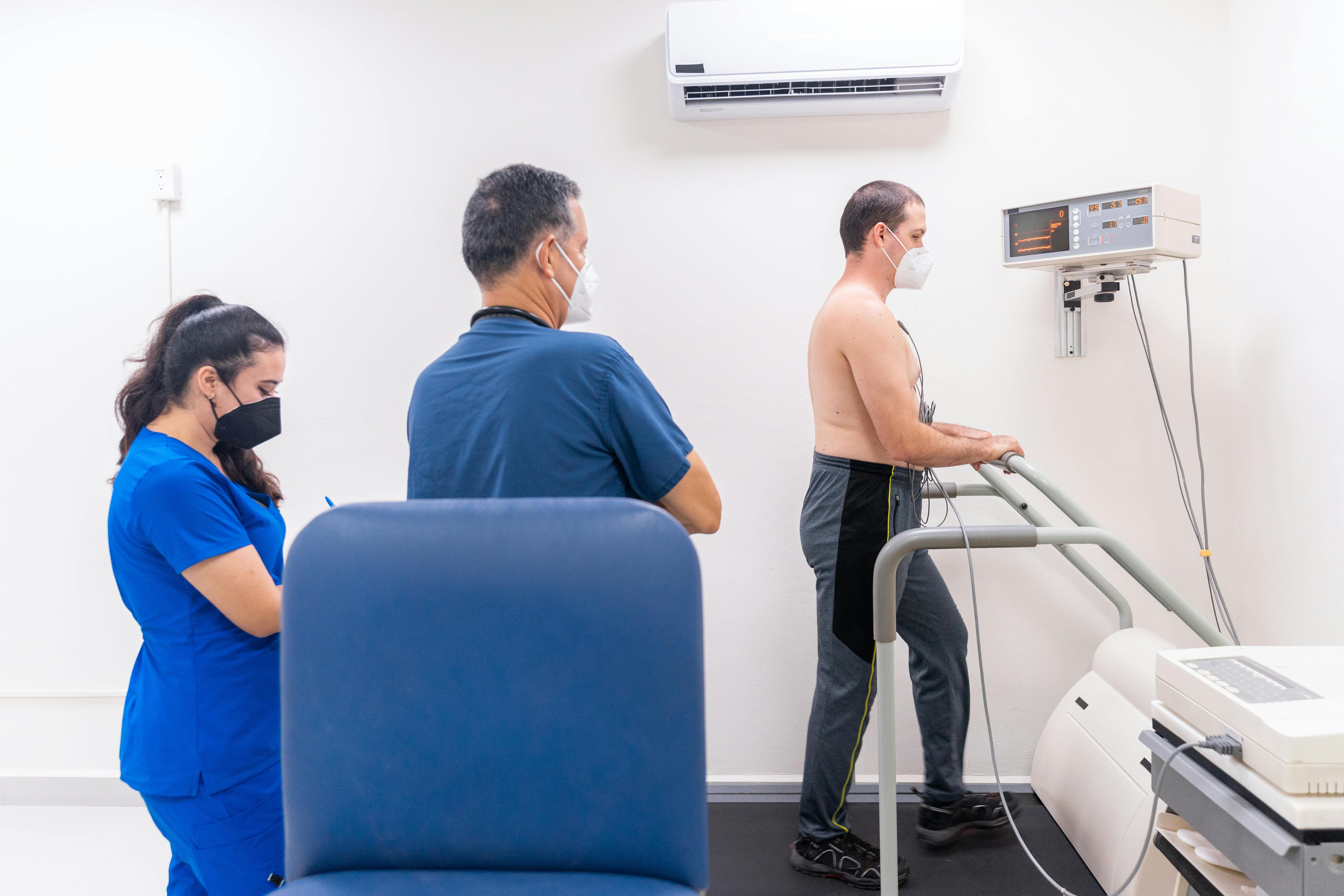When Should You Consider Shoulder Replacement Surgery?

Shoulder pain can disrupt daily life, making simple tasks like lifting a child or cooking a meal feel very hard. Imagine a family member who once loved gardening but now struggles to pull weeds or water plants because of persistent shoulder discomfort. For many, shoulder replacement surgery offers hope for relief and restored mobility. This blog will explore when to consider shoulder replacement surgery, the benefits it provides, and how specialized clinics in Plano can help.
Shoulder Replacement Surgery
Shoulder replacement surgery is a procedure that replaces damaged parts of the shoulder joint with prosthetic components. These artificial parts mimic the natural function of the shoulder, allowing for smooth movement and pain relief. There are different types of prostheses used, including complete joint replacements and partial replacements tailored to the patient’s specific needs.
This surgery is often recommended for those who have tried other treatments without success. It aims to restore comfort, improve shoulder strength, and help patients return to their normal activities.
Common Shoulder Conditions Leading to Surgery
Several conditions can damage the shoulder joint to the point where surgery becomes necessary:
- Chronic Arthritis: Conditions like osteoarthritis and rheumatoid arthritis wear down the cartilage, causing pain and stiffness.
- Severe Fractures: A bad fall or accident can shatter the shoulder joint, leaving surgery as the best option for proper healing.
- Degenerative Joint Diseases: These conditions worsen over time, leading to chronic pain and limited movement.
- Rotator Cuff Injuries: When the tendons in the shoulder are severely damaged and non-surgical treatments fail, replacement surgery may be the best solution.
If you’re experiencing these issues, consulting a specialist can help determine if surgery is right for you.
When to Consider Shoulder Surgery?
How do you know if it’s time for shoulder replacement surgery? Consider the following signs:
- Non-surgical treatments aren’t working: If physical therapy, medications, or injections no longer provide relief, it may be time to explore surgical options.
- Pain disrupts daily life: Difficulty sleeping due to pain or challenges in performing basic tasks like dressing or lifting are red flags.
- Limited shoulder mobility: If the joint is stiff or weak, making it hard to move your arm, surgery may help restore functionality.
Consulting a shoulder replacement clinic in Plano can provide clarity. A specialist will evaluate your symptoms and recommend the best course of action.
Benefits of Shoulder Replacement Surgery
Shoulder replacement surgery offers life-changing benefits, including:
- Pain relief: The primary goal of surgery is to eliminate or significantly reduce pain.
- Improved mobility: Regain the ability to move your shoulder freely and perform daily tasks.
- Enhanced quality of life: With less pain and better mobility, you can enjoy hobbies and activities that were once difficult.
- Durable results: Modern prosthetic implants are designed to last many years, providing long-term relief and functionality.
Patients often report a significant improvement in their overall well-being after surgery.
Types of Shoulder Replacement Procedures
There are different types of shoulder replacement surgeries based on the patient’s needs:
- Total Shoulder Replacement: Replaces both the ball and socket of the joint.
- Reverse Shoulder Replacement: Ideal for patients with severe rotator cuff damage, this procedure reverses the joint’s anatomy for better functionality.
- Partial Shoulder Replacement: Only the damaged part of the joint is replaced, preserving as much of the natural structure as possible.
A surgeon will recommend the best type of procedure based on your condition and goals.
What to Expect During the Procedure
Shoulder replacement surgery typically involves the following steps:
Preparation:
Before the procedure, the surgeon will carefully evaluate your medical history, current medications, and overall health to ensure you are fit for surgery. Imaging tests like X-rays, MRIs, or CT scans are conducted to get a clear view of the damaged shoulder joint. These tests help the surgeon plan the surgery, including selecting the appropriate prosthetic components and determining the best surgical approach.
Surgery:
The procedure is performed under general anesthesia, ensuring you are asleep and feel no pain. During the surgery, the damaged parts of the shoulder joint are removed and replaced with prosthetic components made of metal, plastic, or ceramic. The type of prosthesis used depends on the extent of joint damage and the specific procedure, whether it’s a total replacement, reverse replacement, or partial replacement. The surgery usually takes about two to three hours.
Advanced Techniques:
Modern surgical techniques, including minimally invasive methods, are often used to reduce tissue damage and improve recovery times. These approaches involve smaller incisions and advanced tools, resulting in less pain, minimal scarring, and a shorter hospital stay. Advanced prosthetic designs ensure better joint functionality and durability.
Post-Surgery Monitoring:
After the surgery, you will be closely monitored in the recovery room. The medical team will ensure your vital signs are stable and that you are comfortable. Pain management is a priority, with medications provided to control any discomfort. You may begin gentle movements of the shoulder shortly after surgery, depending on your surgeon’s advice.
These steps are designed to ensure a safe procedure and a smooth recovery process, allowing you to return to daily activities with improved shoulder function and reduced pain.
Recovery Process and Rehabilitation
Recovery from shoulder replacement surgery is a gradual process that requires patience and commitment. Here’s what to expect:
- Immediate post-surgery care: Pain management and monitoring in the initial days.
- Physical therapy: Rehabilitation begins soon after surgery to help regain strength and mobility.
- Timeline for recovery: Most patients see significant improvement within 6-12 weeks, though full recovery may take several months.
Following the surgeon’s advice and completing therapy sessions are key to a successful recovery.
Conclusion:
Shoulder replacement surgery can be a turning point for those struggling with chronic pain and limited mobility. It offers a chance to regain independence and enjoy life without constant discomfort. If you’re considering this procedure, reach out to a shoulder replacement clinic in Plano to learn more about your options. Take the first step toward a pain-free life today!
FAQs:
1. What is shoulder replacement surgery?
Shoulder replacement surgery is a procedure where damaged parts of the shoulder joint are replaced with artificial components, known as prostheses. This surgery is designed to relieve pain, improve mobility, and restore function in the shoulder.
2. When should I consider shoulder replacement surgery?
You should consider shoulder replacement surgery if you experience persistent shoulder pain that interferes with daily activities, difficulty moving your shoulder, or if non-surgical treatments like physical therapy, medications, or injections are no longer effective.
3. What conditions typically require shoulder replacement surgery?
Common conditions include severe arthritis (osteoarthritis or rheumatoid arthritis), shoulder fractures, degenerative joint diseases, and rotator cuff injuries that do not respond to other treatments.
4. How do I know if my shoulder pain requires surgery?
Consult a specialist if your pain disrupts your sleep, limits your mobility, or prevents you from performing basic tasks like dressing or lifting. A thorough evaluation, including imaging tests, can determine if surgery is needed.
5. What are the benefits of shoulder replacement surgery?
Benefits include significant pain relief, improved range of motion, restored shoulder function, and an enhanced quality of life. The surgery also helps prevent further joint damage.
6. Are there different types of shoulder replacement surgeries?
Yes, there are three main types:
Total shoulder replacement: Replaces the ball and socket of the shoulder joint.
Reverse shoulder replacement: Recommended for patients with severe rotator cuff damage.
Partial shoulder replacement: Replaces only the damaged part of the shoulder joint.
7. What is a shoulder prosthesis?
A shoulder prosthesis is an artificial joint component made of metal, plastic, or ceramic that replaces the damaged parts of the shoulder. It mimics the natural function of the shoulder joint.
8. Is shoulder replacement surgery a permanent solution?
While a shoulder replacement is highly effective, prostheses typically last 15 to 20 years. Over time, wear and tear may require revision surgery, depending on the patient's age, activity level, and overall health.
9. What non-surgical treatments should I try before considering surgery?
Non-surgical options include physical therapy, anti-inflammatory medications, corticosteroid injections, and lifestyle modifications. If these fail to provide relief, surgery may be recommended.
10. How long is the recovery process after shoulder replacement surgery?
Recovery usually takes 6 to 12 months, with significant improvements in pain and mobility seen within the first 3 to 6 months. Physical therapy plays a key role in recovery.
Medical Disclaimer
This content is for informational purposes only and is not intended as medical advice, diagnosis, or treatment. Always seek the advice of your physician or other qualified health provider with any questions you may have regarding a medical condition.
Note: IndiBlogHub features both user-submitted and editorial content. We do not verify third-party contributions. Read our Disclaimer and Privacy Policyfor details.







